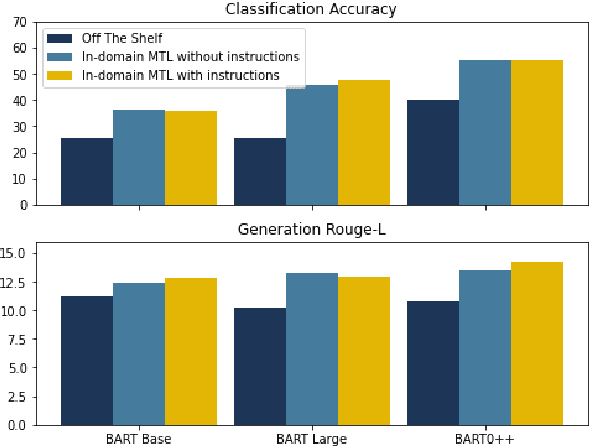Data-Efficiency with a Single GPU: An Exploration of Transfer Methods for Small Language Models
Paper and Code
Oct 08, 2022



Multi-task learning (MTL), instruction tuning, and prompting have recently been shown to improve the generalizability of large language models to new tasks. However, the benefits of such methods are less well-documented in smaller language models, with some studies finding contradictory results. In this work, we explore and isolate the effects of (i) model size, (ii) general purpose MTL, (iii) in-domain MTL, (iv) instruction tuning, and (v) few-shot fine-tuning for models with fewer than 500 million parameters. Our experiments in the zero-shot setting demonstrate that models gain 31% relative improvement, on average, from general purpose MTL, with an additional 37.6% relative gain from in-domain MTL. Contradictory to prior works on large models, we find that instruction tuning provides a modest 2% performance improvement for small models.
 Add to Chrome
Add to Chrome Add to Firefox
Add to Firefox Add to Edge
Add to Edge